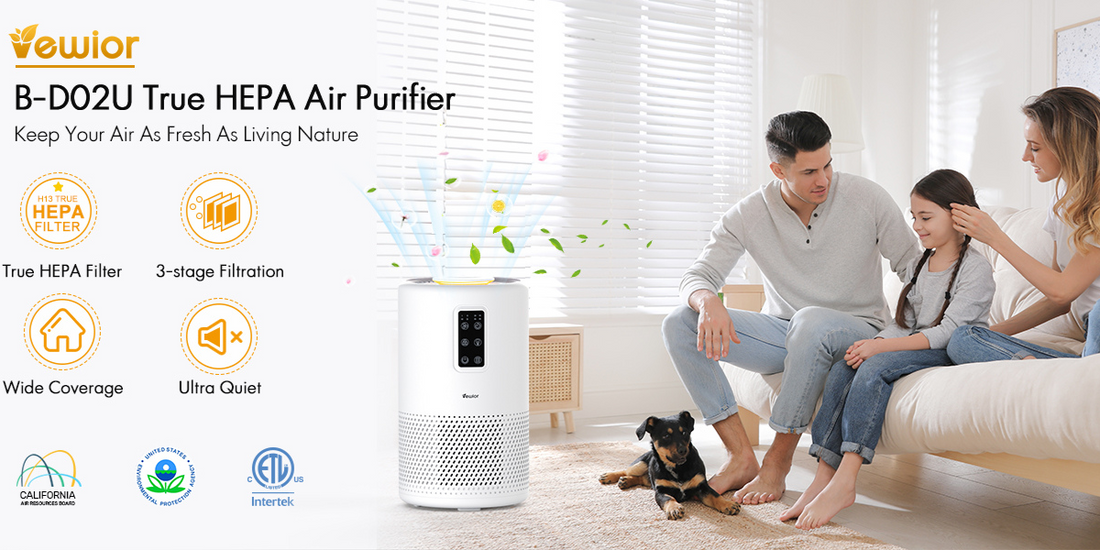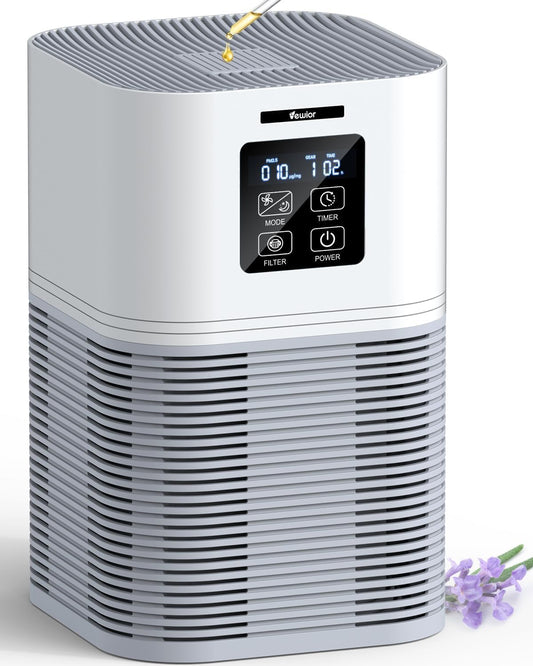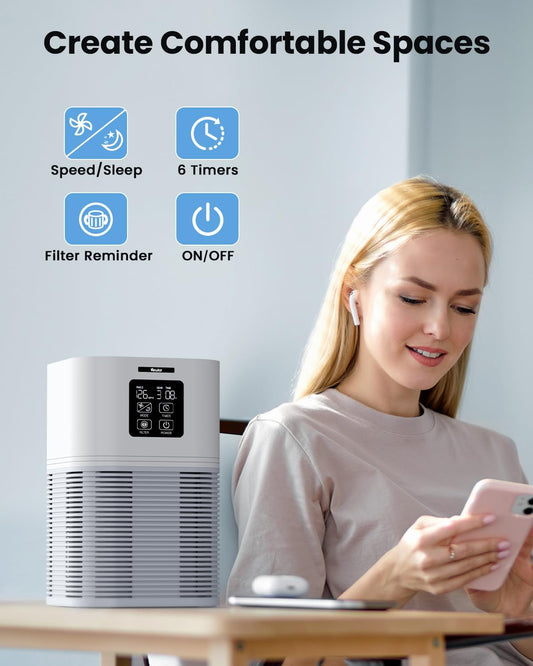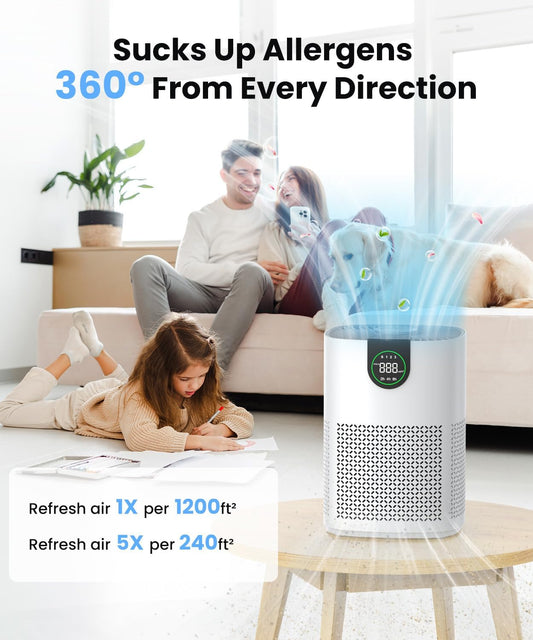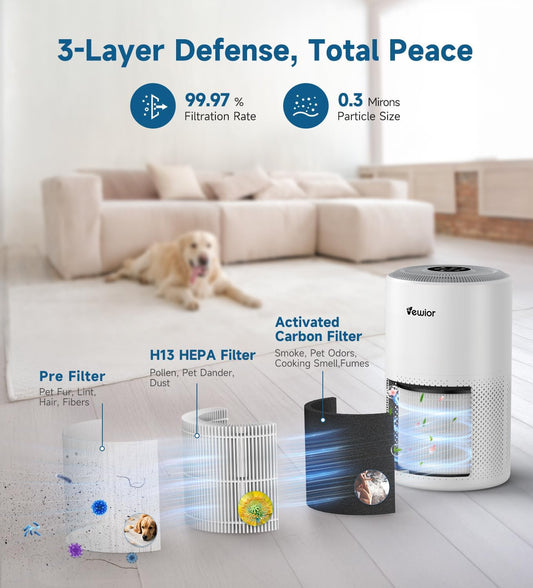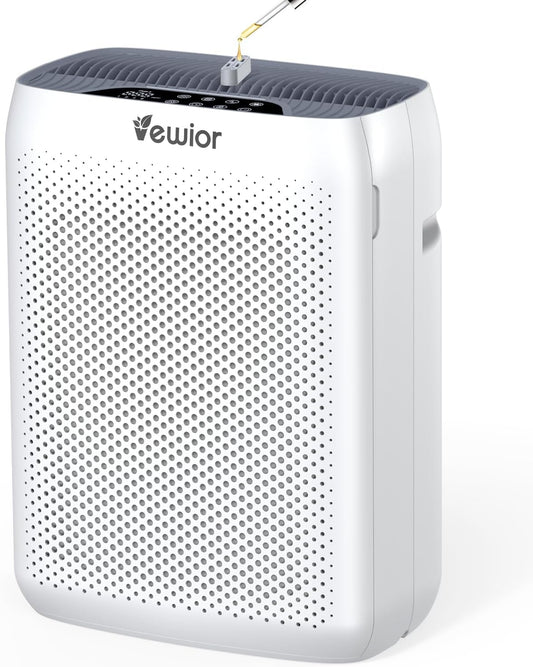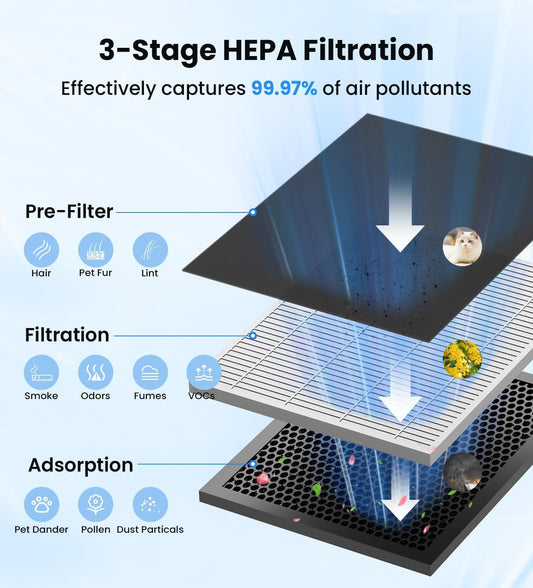Asthma is a chronic respiratory condition that affects millions of people worldwide, causing symptoms such as wheezing, coughing, shortness of breath, and chest tightness. As individuals with asthma seek ways to manage their condition and improve their quality of life, one question frequently arises: Can air purifiers help with asthma? In this article, we will explore the potential benefits of air purifiers in managing asthma symptoms and creating a healthier indoor environment.
Understanding Asthma
Asthma is a respiratory condition characterized by inflammation and narrowing of the airways. Common triggers for asthma attacks include allergens like pollen, pet dander, dust mites, mold spores, and irritants such as tobacco smoke, strong odors, and air pollution. These triggers can lead to increased airway inflammation, causing asthma symptoms to worsen.
The Role of Air Purifiers
Air purifiers are designed to improve indoor air quality by capturing and filtering airborne pollutants, including asthma triggers. While air purifiers are not a cure for asthma, they can help reduce exposure to irritants and allergens, potentially leading to a decrease in asthma symptoms and improved respiratory health.
HEPA Filters
High-Efficiency Particulate Air (HEPA) filters, commonly found in air purifiers, are highly effective in capturing small particles, including common asthma triggers. These filters can trap particles as small as 0.3 microns with an efficiency of 99.97%. By removing allergens like pollen, dust mites, pet dander, and mold spores from the air, HEPA filters can significantly reduce the triggers that can exacerbate asthma symptoms.
Removal of Respiratory Irritants
In addition to allergens, air purifiers can help remove respiratory irritants that can worsen asthma symptoms. Substances like tobacco smoke, volatile organic compounds (VOCs), and air pollutants can irritate the airways and lead to asthma attacks. Air purifiers equipped with activated carbon filters can effectively adsorb these irritants, helping to create a cleaner and healthier indoor environment for individuals with asthma.
Reduced Allergen Load
Air purifiers can help reduce the overall allergen load in the indoor environment, which is especially beneficial for individuals with allergic asthma. By capturing and removing allergens from the air, air purifiers can decrease the exposure to these triggers, potentially leading to a decrease in asthma symptoms and improved overall respiratory health.
Considerations for Asthma Management
While air purifiers can be beneficial for individuals with asthma, it's important to consider a few factors to maximize their effectiveness:
- Proper Sizing: Choose an air purifier that is appropriately sized for the room or area where asthma relief is desired. The air purifier should have the capacity to clean the air effectively within the designated space.
- Continuous Operation: For optimal results, run the air purifier continuously, especially in rooms where individuals with asthma spend most of their time. This ensures a consistent filtration of the air, reducing the presence of triggers.
- Maintenance and Filter Replacement: Follow the manufacturer's guidelines for filter replacement and general maintenance. Regularly changing filters and cleaning the air purifier will ensure optimal performance and continuous reduction of asthma triggers.
- Comprehensive Asthma Management: While air purifiers can help manage asthma symptoms, they should be used as part of a comprehensive asthma management plan. This plan may include medication, allergen avoidance strategies, and regular communication with healthcare professionals.
Conclusion
Air purifiers, particularly those equipped with HEPA filters and activated carbon filters, can be beneficial for individuals with asthma. By reducing exposure to allergens and respiratory irritants, air purifiers can potentially decrease asthma symptoms and improve overall respiratory health. When used in conjunction with proper sizing, continuous operation, and regular maintenance, air purifiers can play a significant role in creating a healthier indoor environment for individuals with asthma.

